What drives some persons to leave the comfort of their shores for faraway lands, seeking out unfamiliar faces and alien cultures, all while compelled by an inexplicable urge to offer help? Such an altruistic drive is spurred not by logic but by a profound desire to rectify injustices or alleviate burdens through the sharing of one’s talents and resources. These thoughts echo the sentiments expressed by many who have ventured into this transformative experience.
Such reflections surfaced for me when I heard Jonathan Pace recount his two-week stay in Kumasi, Ghana. Jonathan serves as the Area General Manager and VP of Operations at Verdi Hotels, and he travelled alongside David Mifsud, the Head Chef at Verdi Hotel, St George’s Bay Marina.
Jonathan had long harboured a wish to assist in a mission abroad, but opportunities seemed to elude him. That was until he learned about a pressing need that aligned perfectly with his skills. He discovered the inspiring story of a Maltese gentleman, Mario Cappello, and his wife, Anna, who had dedicated many years to helping the less fortunate in Ghana. Cappello embarked on his mission in 1997 after encountering a girl in Kumasi, in desperate need of medical attention. Confronted with his own helplessness, he resolutely decided to take action. His conclusion was daunting: build a hospital in Kumasi.
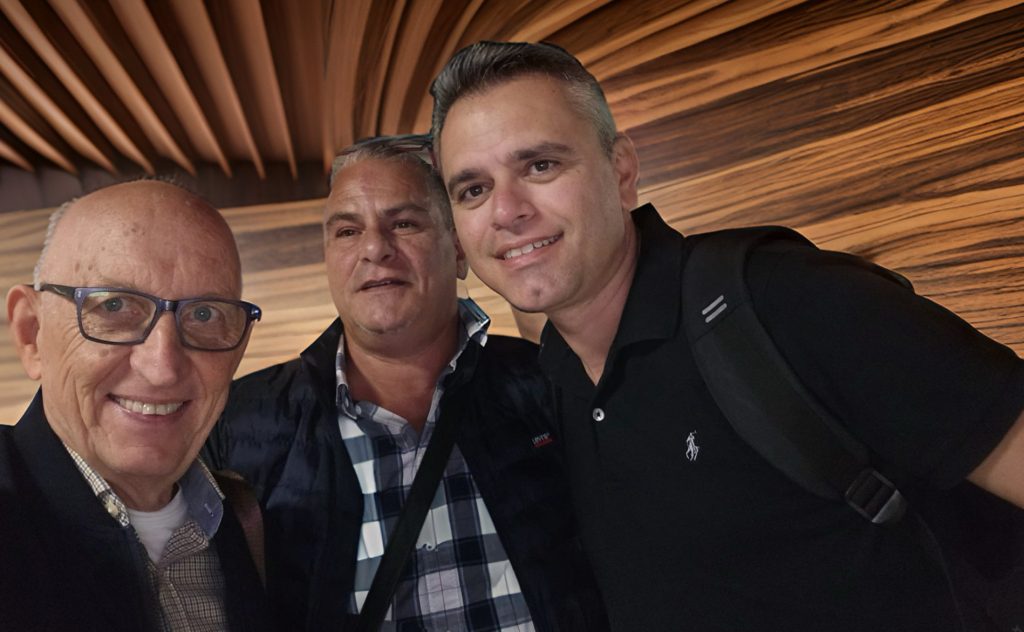
Mario and Anna Cappello are the visionary founders of the Institute for Evangelisation (ICPE), established in Malta in 1985. Over the years, their mission has expanded, reaching numerous countries, including Malta, Rome, Germany, Poland, New Zealand, the Philippines, India, Indonesia, and Ghana.
In the same year, the Cappello couple fulfilled one of their cherished dreams by founding the HopeXchange Foundation. This initiative culminated in the establishment of a large hospital in Ghana, often referred to as the Maltese Hospital, primarily funded by donations from Malta and its sister island, Gozo. Equipped with state-of-the-art facilities, this hospital provides a wide range of medical services, including maternity care, endoscopy, and dedicated adult and paediatric wards, alongside outpatient centres and clinical research laboratories. Remarkably, over 60,000 individuals benefit from the hospital each year, solidifying its status as one of the region’s most essential medical centres. The hospital’s staff has expanded to about 500, accommodating the steady influx of patients while maintaining a policy that welcomes contributions from those who can afford to pay, without requesting it from those who cannot.
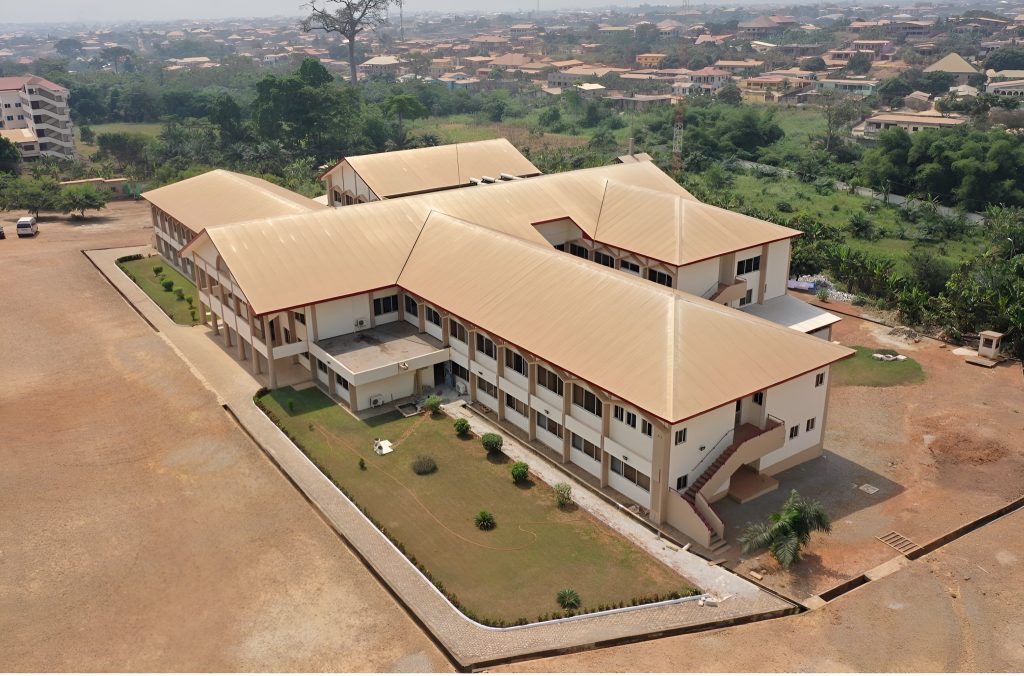
To address the needs of the foreign medical professionals and helpers residing on the hospital premises, the institution previously outsourced meal provisions to external catering services. In an effort to cut costs and enhance quality, a state-of-the-art kitchen has been constructed, once again through generous contributions. This is where Jonathan, David, and Corinthia come into play. Tasked with training three new kitchen trainees and coordinating cooking assignments, Jonathan and David devoted a full day to exploring local markets for suitable ingredients. Despite the limited options available, they crafted a diverse menu that transcends the traditional Ghanaian diet, catering to the varied tastes of international doctors and helpers.
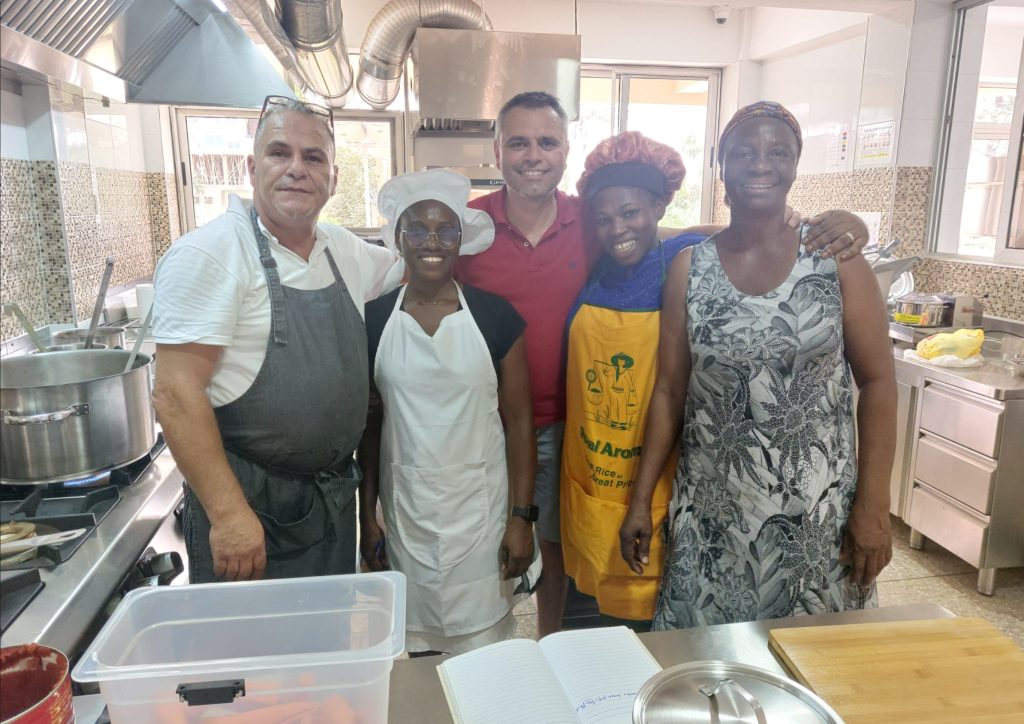
David took the lead in instructing the trainees on how to operate the new kitchen equipment, which was unfamiliar to them, as well as teaching them various cooking techniques and presentation skills. Through this collaborative effort, the team not only enhanced the culinary offerings but also fostered a spirit of learning and cultural exchange.
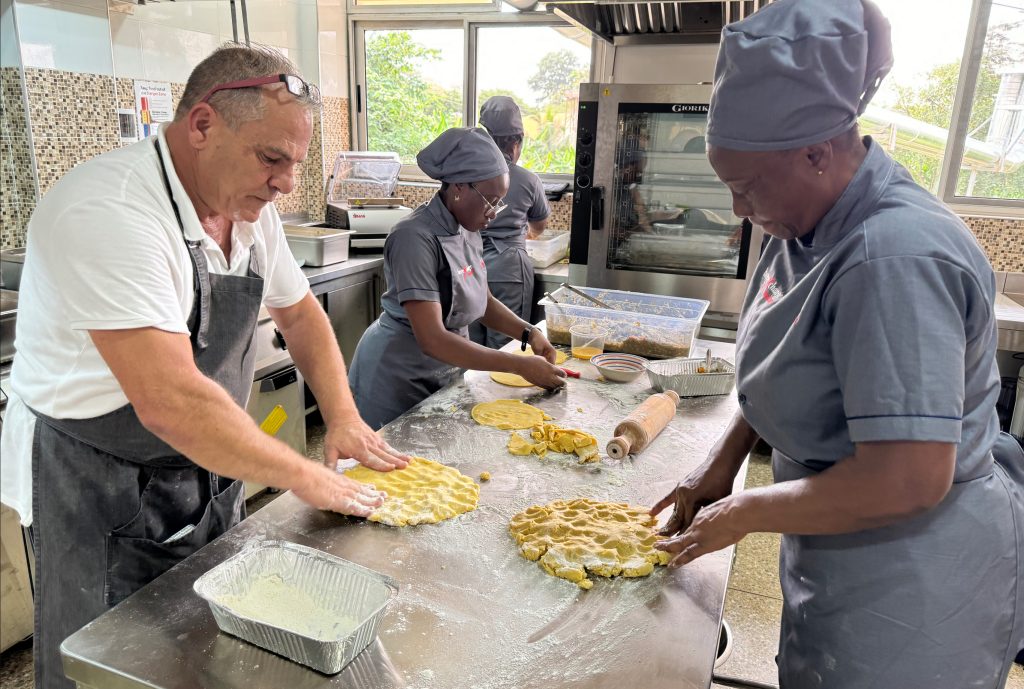
Jonathan and David were thrilled with the positive disposition of the trainees to learn. ‘They were willing to meet the challenge, and after a few days of hard training, we could see significant headway. They are still in touch with us to assist with ideas and problems, so they have an ongoing assistance service.’
But was this merely a flash in the pan? Did Jonathan hope to follow up next year? ‘Certainly, I intend to visit them yearly to see what can be arranged or further developed. I can envision this growing into a general service for the whole hospital, thus, in time, being able to offer food to all the patients, not just the doctors and volunteers. This will greatly reduce outside catering expenses and allow any gains to be reinvested in the hospital service. It is a non-profit organisation, so any gains are reinvested into the project.’
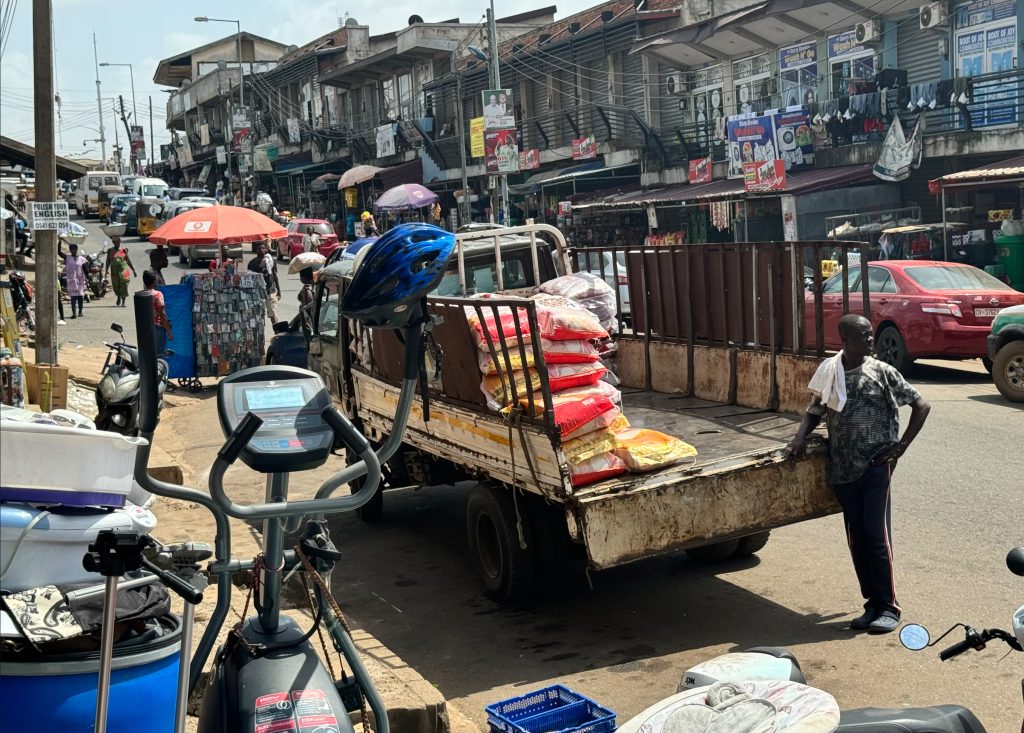
Did Jonathan feel this experience has somehow affected him positively? ‘These are moments that help us appreciate what we have. Outside the hospital compound, the standard of living is low. Sanitary and living conditions are well below acceptable standards. Yet we saw children smile and play with cloth footballs and handmade dolls. I saw elderly individuals who were undoubtedly challenged by their conditions but retained a broad smile. It is a thought-provoking question I ask myself: what right do I have to grumble or yearn for something that many others would consider capricious?’
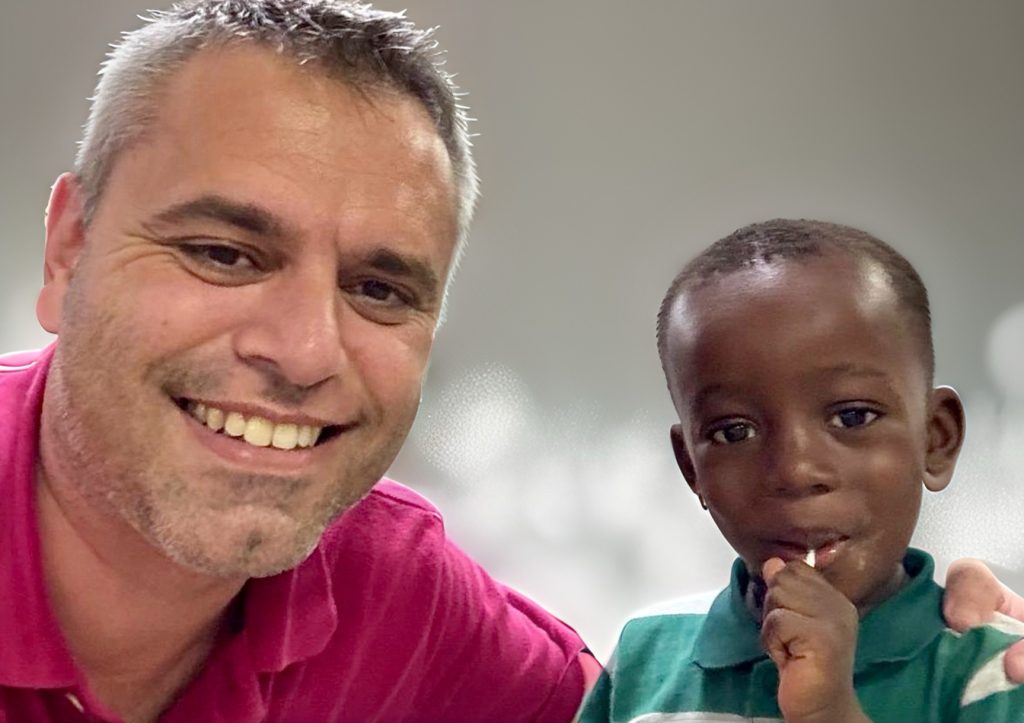
‘We took some gifts with us to attract the smiles of little children: about 500 stationery sets and some 800 lollipops.’
Jonathan was silent for a few seconds. I could tell he was reminiscing. ‘The lollipops were a great success. They were an innovation; the children loved them and returned for more. I learned that one lollipop can offer serenity to a child for a few minutes. It’s a lesson—the power of small blessings—a thought to ponder and draw one’s own conclusion.’

